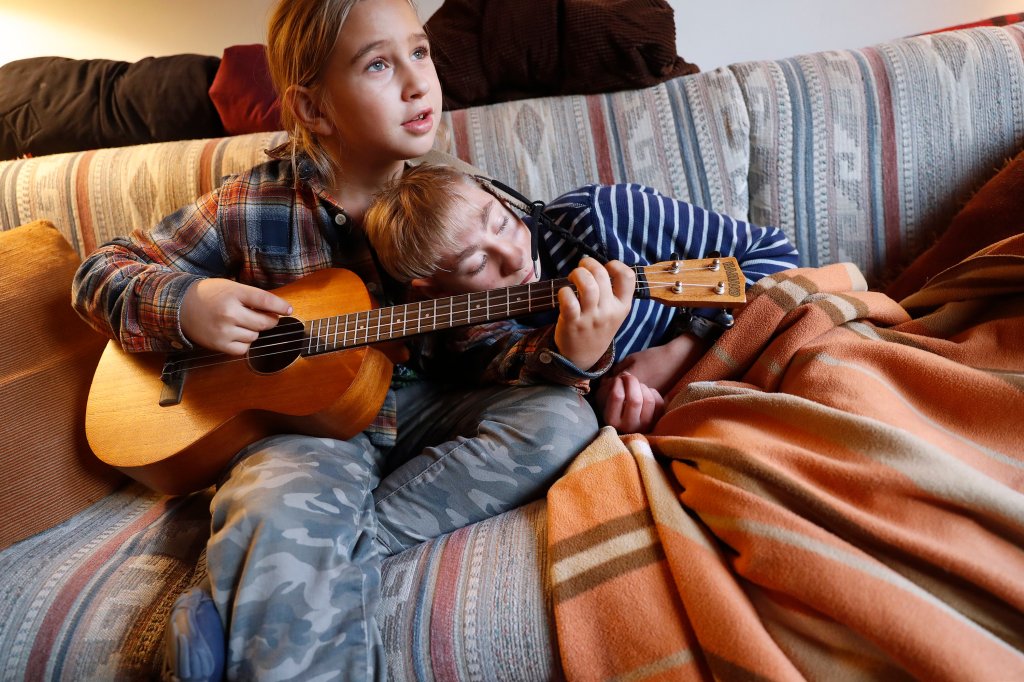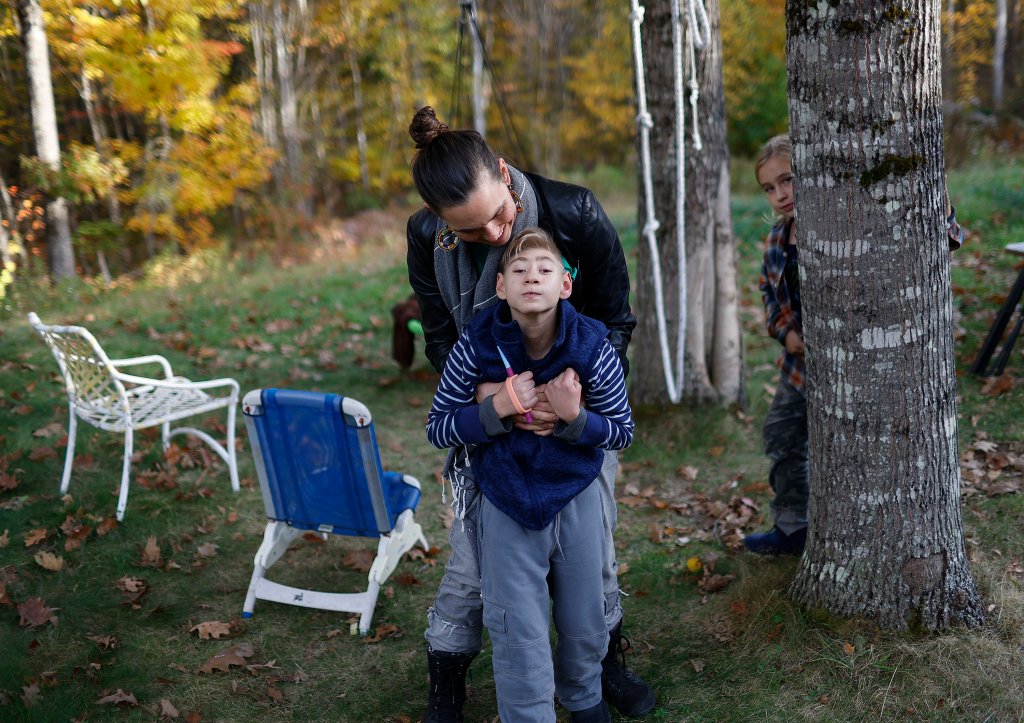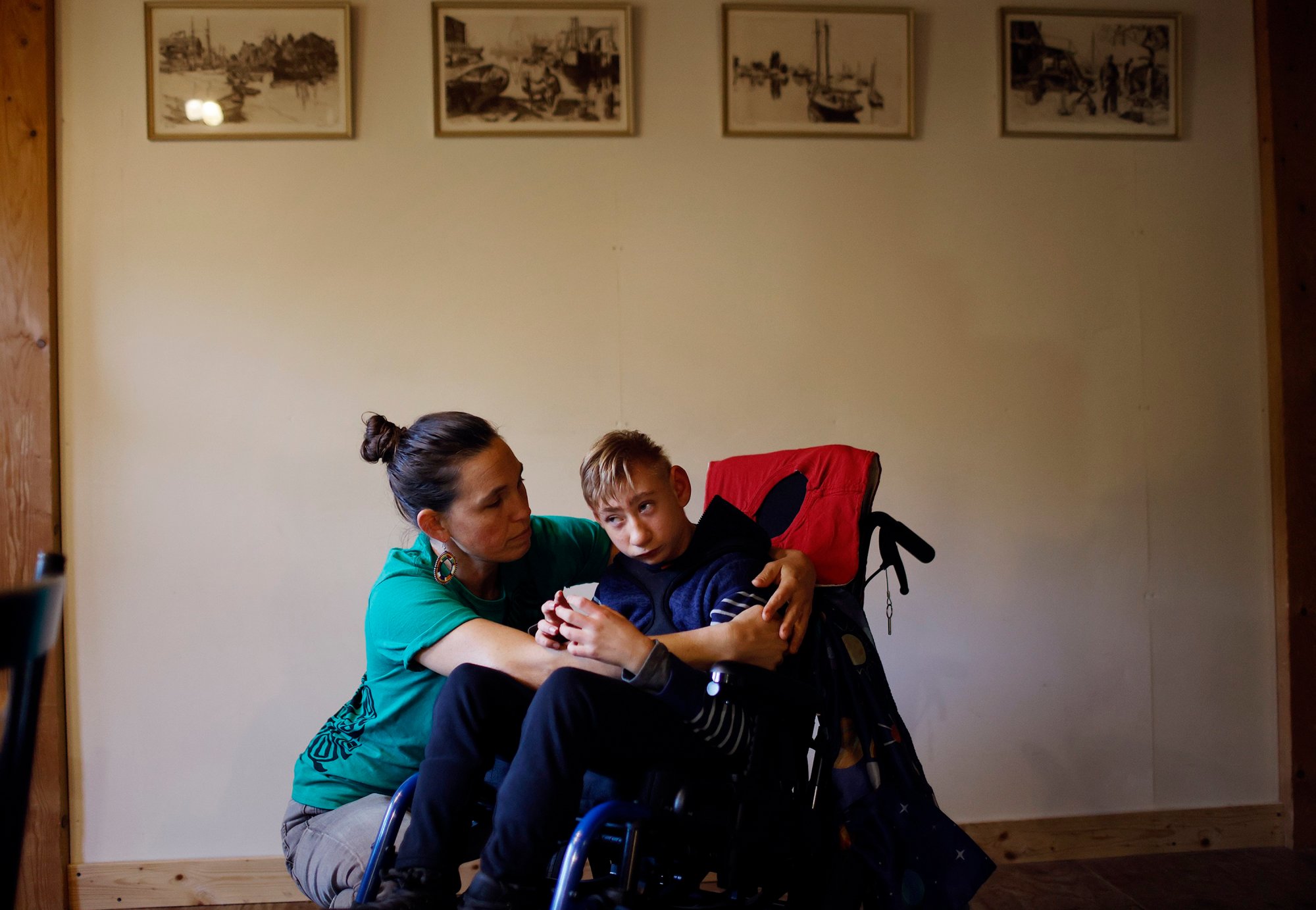Andrea Dole remembers feeling hopeful in 2023 when lawmakers passed a law to pay parents of severely disabled children as caregivers.
“I felt so validated and energized. We had wind at our sails,” said Dole, who spent years advocating for the program. Her 10-year-old son has microcephaly and cerebral palsy and requires around-the-clock care.
Two years later, experts say, the law is still inaccessible to parents.
Maine’s Medicaid program allows home health agencies to hire parents as caregivers, but it also mandates that those agencies have a Medicare license. The problem, experts say, is that agencies licensed under Medicare don’t typically serve the pediatric population, creating a barrier for parents trying to get paid as caregivers.
“Parents can’t sign up. This program is not happening at all,” said Nancy Cronin, executive director of the Maine Developmental Disabilities Council, a quasi-governmental agency.
Dole, who is trained as a certified nurse assistant, said she called about 10 agencies across the state this year, seeking to be hired by one to care for her son, as the law intends. She said she was told each time that they weren’t offering the program.
“The program is on the books, but we can’t use it,” said Dole, 44, of Belfast. “I went through a lot of work and personal sacrifice to get my ducks in a row to provide the care that my son needs, only to be told ‘no.’ I’m back at square one.”
She said it’s “a kick in the gut, a slap in the face. We are still invisible. Our kids are still invisible. It’s incredibly painful.”
Lindsay Hammes, a spokesperson for the Maine Department of Health and Human Services, said the department doesn’t track the 34 agencies that could hire parents as caregivers to see if they actually do. But she said it has learned that a few agencies have stopped providing pediatric home health services or are not taking new patients.
“This has created a barrier for some families trying to access the program,” Hammes said in a statement.
Hammes said the agency is working with parents, providers and advocates to fix the roadblocks.
Sara Ratcliffe, executive director of the Home Care and Hospice Alliance of Maine — an association for home health care agencies that advocates for their interests at the State House — said the law, as it’s currently structured, is unworkable. The agencies that are allowed to hire parents as caregivers, she said, primarily care for the 65 and older population or adults with disabilities.
“It’s created this conundrum that’s very difficult to work through, and parents are caught in the middle with no place to go,” Ratcliffe said.
Ratcliffe and Cronin said they are not aware of any agencies across the state running the program and the state didn’t point to any when asked. Cronin said about 300 families in Maine would qualify for the program and it’s estimated that between 50 and 100 parents would use it if it were operating smoothly.
Ratcliffe said she has been meeting with DHHS officials about the problem and they are in the early stages of discussing solutions.
State Sen. Joe Baldacci, D-Bangor, who backed the bill to pay parents as caregivers, placed the blame on what he called an “intransigent” and “incompetent” Maine DHHS and Gov. Janet Mills’ office.
Ben Goodman, a spokesperson for Mills, did not respond to requests seeking comment.
“They are entrenched in the bureaucracy and not responsive to the people,” Baldacci said. “It’s not right, it’s heartbreaking and the state can do better.”
‘NO GUIDANCE FOR FAMILIES’

Bill Sczepanski, vice president of government relations for Team Select Home Care — which operates in 16 states, but not in Maine — said parent caregiver laws can work well if implemented correctly. He pointed to Massachusetts and Colorado as examples of states with successful programs.
He said one problem with the law in Maine is that it mandates parents go through agencies that don’t provide the type of home health care needed for severely disabled children.
Sczepanski said the law allows home health agencies to hire parents as a benefit under MaineCare, the state’s Medicaid program. But it also requires those agencies to get a license under Medicare. Agencies with a Medicare license don’t typically serve pediatric populations, he said.
“The agencies are saying, ‘We don’t do this. This isn’t our business,'” Sczepanski said.
Home health agencies with a Medicare license typically do more short-term nursing, such as helping people rehabilitate after surgery, physical therapy or occupational therapy. Providing services for disabled children is a long-term commitment, which agencies under the Maine law are not set up to do, he said.
Hammes said the program is designed to pay parents for short-term nursing needs of their children, and that federal law prohibits DHHS from paying parents for long-term nursing.
But Cronin, a Medicaid policy expert who helped write Maine’s law, said that’s not true.
“There are many exceptions in Medicaid that would allow the state to do this, and many states are paying parents for long-term care,” Cronin said. “By no means was this ever mentioned that the benefit for parents would only be for short-term care.”
The law does not mention short-term or long-term nursing care, only that the state could pay parents — under Medicaid — to be caregivers for their disabled children.
Under the program, caregivers would be paid about $20 to $25 per hour. Cronin said when fully implemented, the cost would be a few hundred thousand dollars per year, using a blend of state and federal dollars. The state initially allocated about $150,000 per year to get the program off the ground, Cronin said. Maine would reimburse the agencies that are hiring parents.
Baldacci said families need help now and he plans to pressure DHHS and the Mills administration to make the program accessible.
“We should be asking ourselves, ‘How do we solve this problem to help these families?'” he said. “Instead it’s like we’re rolling a rock up a hill, only to have it roll back down again.”
Cronin said the department made mistakes in devising a program that can’t currently be used.
“There is no guidance for families or providers to know how to access this care,” she said. “It is very frustrating and confusing.”
IMPACT OF WORKFORCE SHORTAGES

Compounding the problem, Cronin said, is how difficult it is for parents to hire a home health nurse to help care for their disabled children.
Parents of severely disabled children qualify through MaineCare to have a nurse work out of their home. The workforce shortage and low reimbursement rates to provide direct care, though, have resulted in greater demand than supply, advocates say.
The workforce shortage is part of what spurred the legislation to pay parents as caregivers. A separate program in Maine that pre-dates the law allows a parent who is already a registered nurse to be paid as a parent caregiver, Cronin said.
Dole is the primary caregiver to her son James, but does receive assistance from a home health agency, which sends a nurse to their home for part of the week. James has cerebral palsy and microcephaly, a condition that means his brain is much smaller, and needs constant care. He has intellectual disabilities, is non-verbal, has difficulty learning and can only walk a few steps at a time.
James qualifies for 125 hours per week for home health nursing through MaineCare, but Dole said the amount of help her family can get for him has varied over the years.
Currently, a nurse comes to the home 60 hours per week, but at times she said they’ve had that cut down to 20 hours or haven’t gotten any help at all.
Dole said not being able to get paid to be her son’s primary caregiver has made her family’s financial situation difficult. Looking after James precludes her from working, so her family of four lives on about $45,000 per year from her husband’s income as a boat builder.
“It’s very stressful for our family, and we get more nursing care than some families,” Dole said.
She said she’s going to keep trying to advocate for the program — working with lawmakers and state officials — even though it’s been “exhausting.”
“We do all kinds of work every day that’s unpaid and unrecognized,” Dole said. “If we could be paid for some of this work, it would reduce a lot of strain on our families, and take some stress out of our lives.”


We invite you to add your comments. We encourage a thoughtful exchange of ideas and information on this website. By joining the conversation, you are agreeing to our commenting policy and terms of use. More information is found on our FAQs. You can modify your screen name here.
Comments are managed by our staff during regular business hours Monday through Friday as well as limited hours on Saturday and Sunday. Comments held for moderation outside of those hours may take longer to approve.
Join the Conversation
Please sign into your CentralMaine.com account to participate in conversations below. If you do not have an account, you can register or subscribe. Questions? Please see our FAQs.